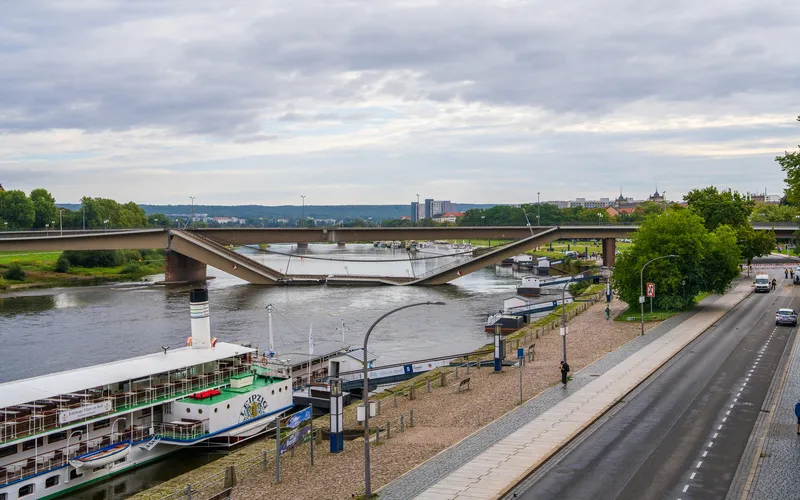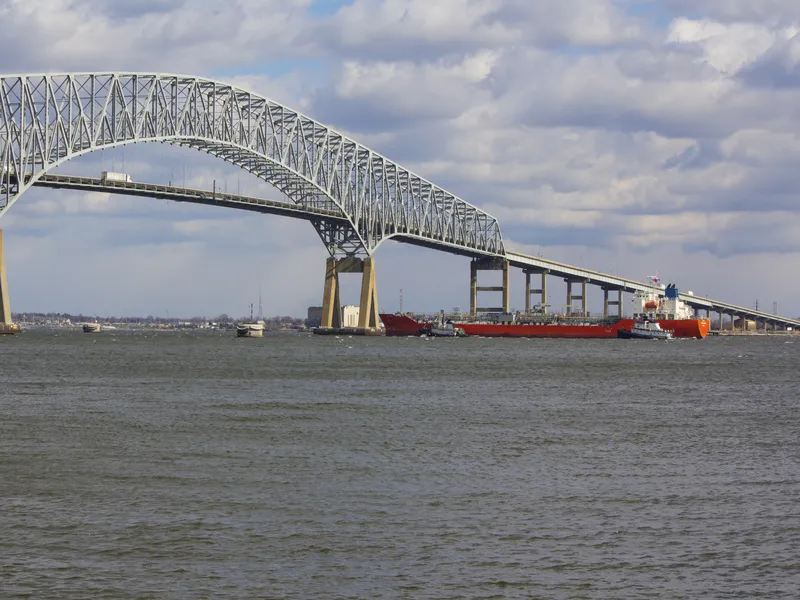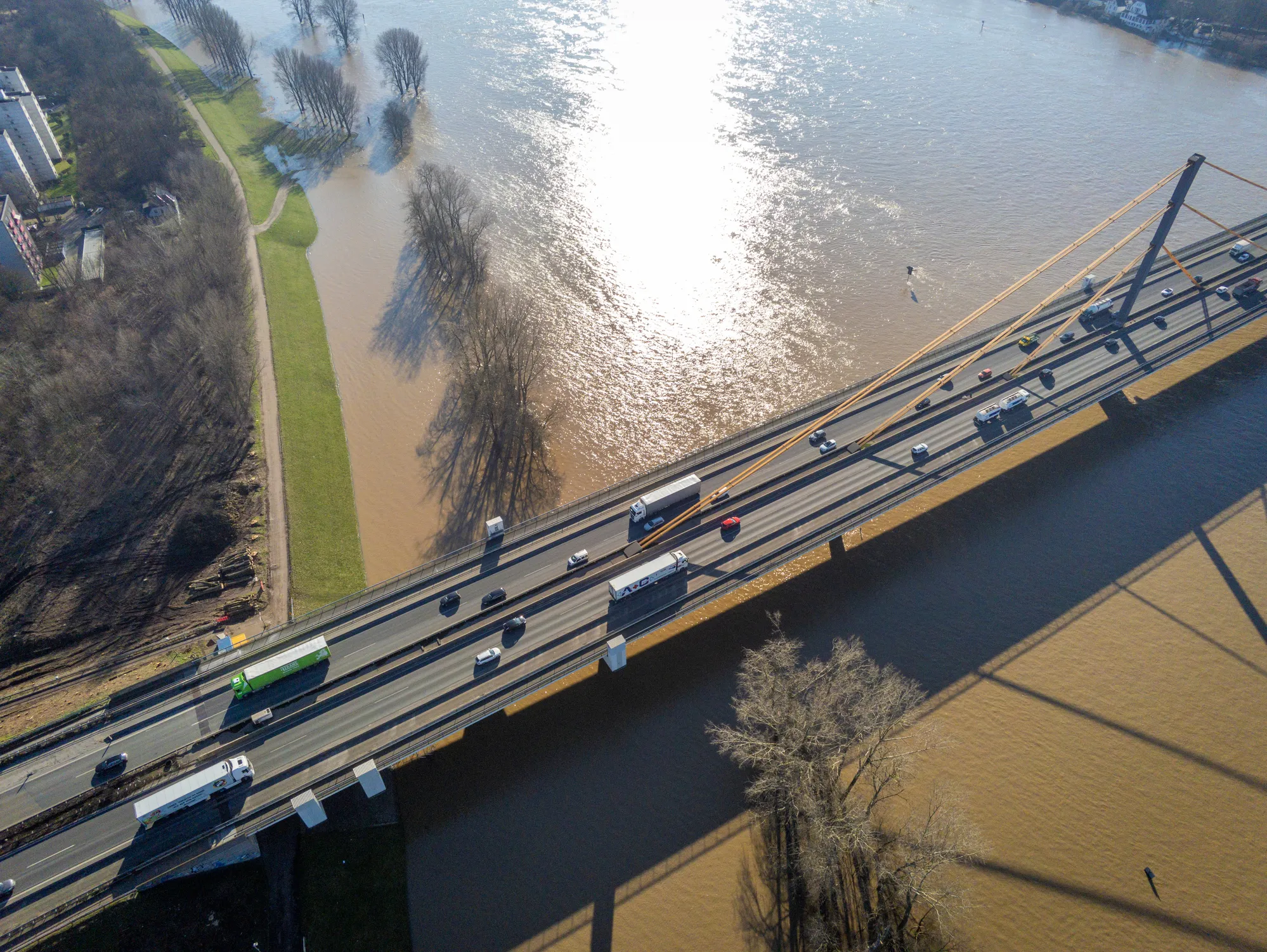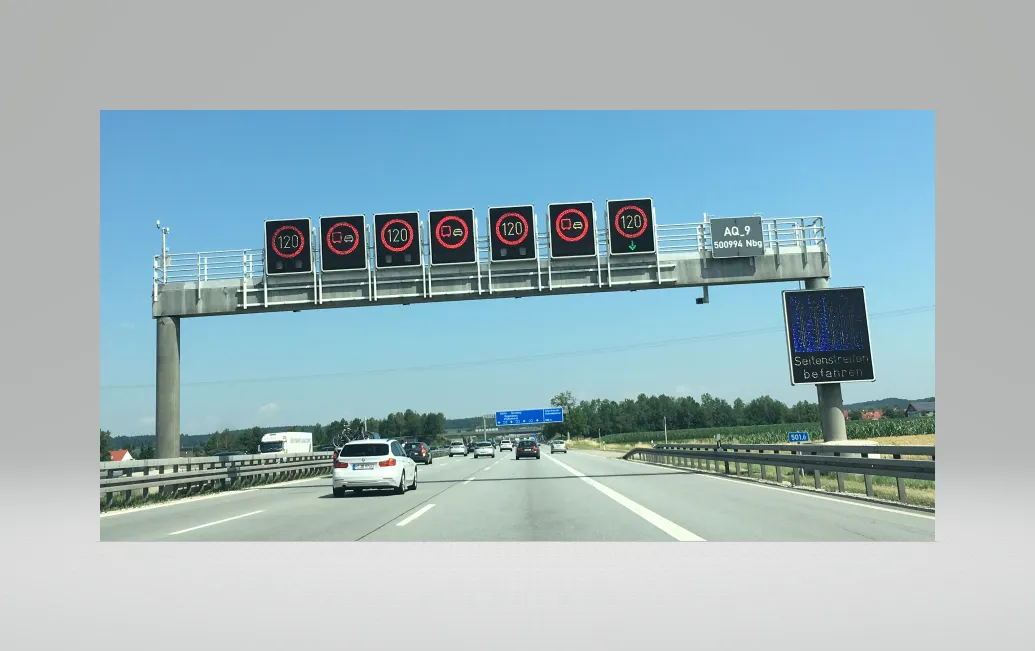
Germany has a serious problem with its road and rail transport infrastructure, which could cost billions to maintain and repair. Estimates suggest that anything from 1,000-2,000 bridges on the country’s Autobahn highway network and trunk road network are in need of major repairs or replacement.
Many of the bridges built in the 1960s and 1970s are reaching the end of their working life, with most carrying far higher traffic volumes and much heavier vehicles than they were designed for.
A bridge on the A8 linking Munich with Salzburg in Austria is to be renewed. The contract for the work has been announced by Die Autobahn GmbH des Bundes - Southern Bavaria Branch. The work is expected to commence in mid-2025.
And in the third quarter of 2024, the Carola Bridge in Dresden, which carried trams, pedestrians and cyclists, collapsed into the River Elbe, halting water traffic. The bridge was demolished and removed quickly within just two days of its collapse, but questions remain as to how it had got into such a poor state of repair. The Carola Bridge was built between 1967 and 1971, replacing an earlier structure destroyed at the end of WWII. A box girder design, the bridge had suffered from severe corrosion of the steel reinforcement and had been due for maintenance work prior to the collapse.
The collapse of the Carola Bridge has highlighted the issue with regard to ageing bridges in Germany. Restrictions have been placed on a number of bridges in South West Germany, limiting the size and weight of vehicles allowed to pass over them, although there have been no closures as yet. There are 73 bridges that are considered at risk and that will have to be replaced by 2030.
Meanwhile in the German Schleswig-Holstein State there is a more positive outlook with regard to roads. There has been a €279 million investment in roads and cycle paths during 2024. This was a record for the state, with €125.6 million of this budget being spent on state roads.
Maintenance and upgrade work was carried out worth €90 million to improve 105km of roads in Schleswig-Holstein, an increase of 20% over the budget for 2023. Around 2,700km of district roads received repairs worth a total of €23.5 million, with cycle facilities benefiting from €35 million for construction and upgrade works.
But Federal funding of road works to the 1,400km network in Schleswig-Holstein dropped by €12.5 million to €130 million compared to 2023.









